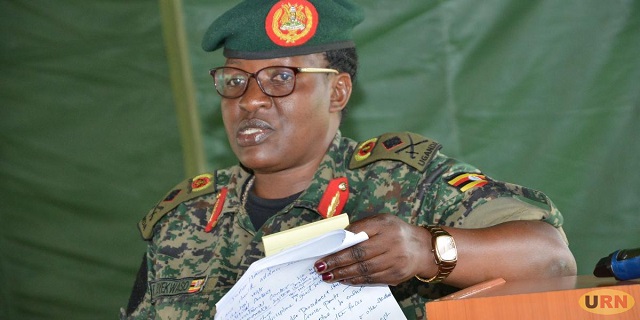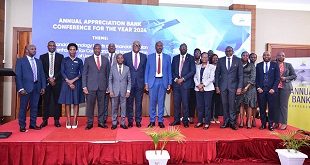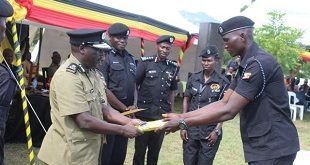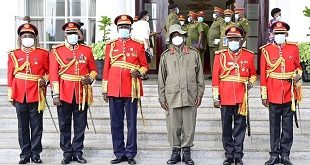
Kampala, Uganda | THE INDEPENDENT | The Chief of Staff for the Uganda Rapid Deployment Capability Center, Brig. Flavia Byekwaso has challenged UPDF officers, deployed within the court-martial setups to be mindful of the prevailing political interests in the course of dispensing justice to the offenders and complainants alike.
The court martial officials comprising of chairpersons, prosecutors, and defense lawyers have been undergoing five days of training in human rights, international law, and refugee law, among other courses at the Jinja-based Legal Training Center.
While closing the training on Friday evening, Byekwaso argues that all things are dependent on efficient security systems and the forces thereof depend on a strong military establishment for their sustainability, which court martial officials ought to undertake through their undertakings.
Byekwaso notes that UPDF has built strong systems to avert interference in how investigations and verdicts are delivered, however, all officers mandated with dispensing justice should be well aware of the political setups, coupled with how best such circumstances can be prevailed over in the interest of fairness.
Byekwaso was one of the UPDF representatives in the last Parliament. Her remarks follow persistent complaints about delayed justice from some of the civilians being tried under the UPDF Court-martial. There have been local and international demands that civilians should not be tried in military Courts but the UPDF has been adamant.
Byekwaso said while she was still serving as the UPDF spokesperson, she released statements in the interest of national security, but individuals whom she said were ignorant of how some systems operate described her as a puppet who was being directed on how to speak.
She urged the court martial officials to equally carry out their duties for the benefit of wider national interests.
She further implored court martial officials to act within the country’s human rights situation rather than succumbing to pressures of civil society organizations that she said tend to focus on first-world human rights standards.
Byekwaso said countries like Israel and Russia have invaded the borders of other sovereign states in the quest of ensuring their national security, adding that the Court Martial officials ought to prioritize national security over any human rights voices.The Legal Training Center commandant, Lt. Col. Susan Mwanga tasked the officers to focus on research and relearning new aspects of Justice dispensation, which he says will enable them to exercise fairness without any compromise.
However, some legal experts have disagreed with Brigadier Byekwaso over the call of the court martial officials to be selective when applying human rights standards. They argue that most of the human rights provisions in the Ugandan constitution are linked to the Universal Declaration of Human Rights.
Human rights are rights we have simply because we exist as human beings – they are not granted by any state. These universal rights are inherent to us all, regardless of nationality, sex, national or ethnic origin, color, religion, language, or any other status.
They range from the most fundamental – the right to life – to those that make life worth living, such as the rights to food, education, work, health, and liberty.
Article 1 of the UDHR states: “All human beings are born free and equal in dignity and rights.” Freedom from discrimination, set out in Article 2, is what ensures this equality. Non-discrimination cuts across all international human rights law. This principle is present in all major human rights treaties.
*******
URN
 The Independent Uganda: You get the Truth we Pay the Price
The Independent Uganda: You get the Truth we Pay the Price


